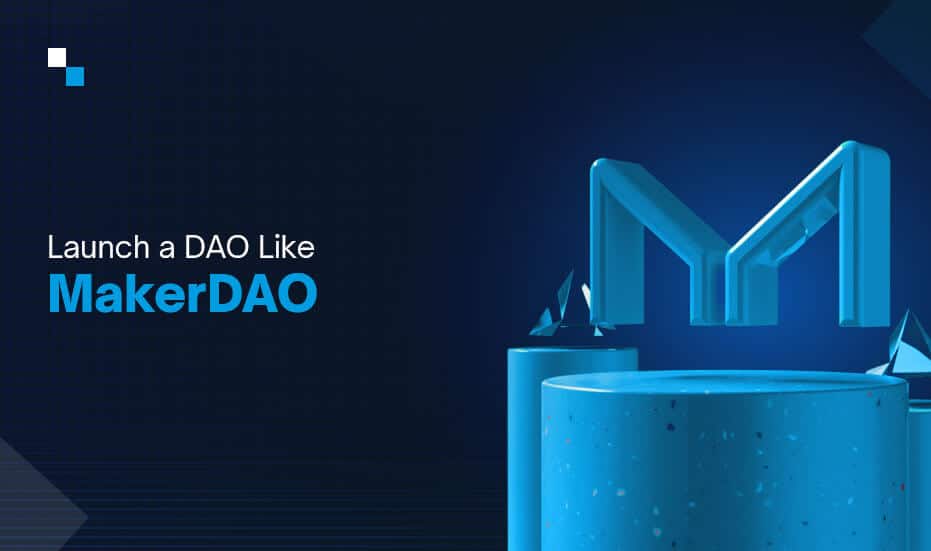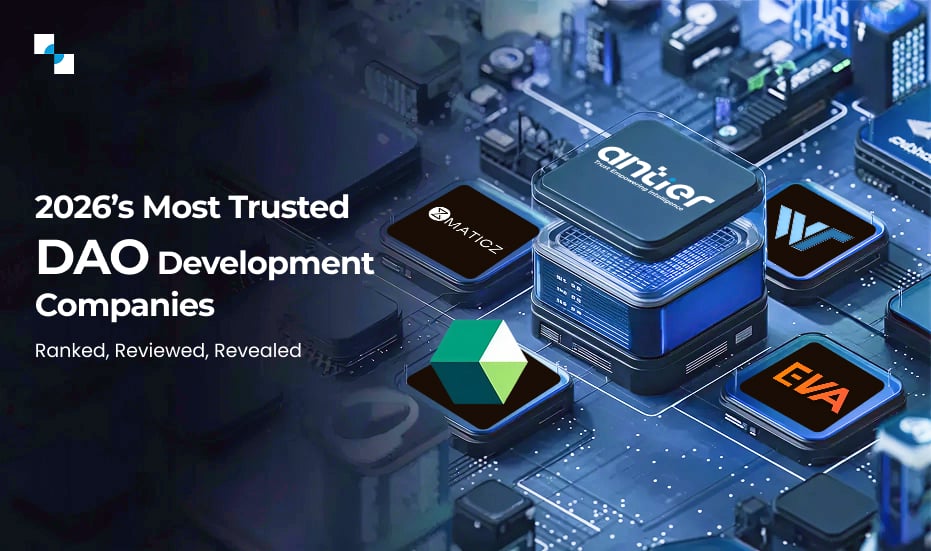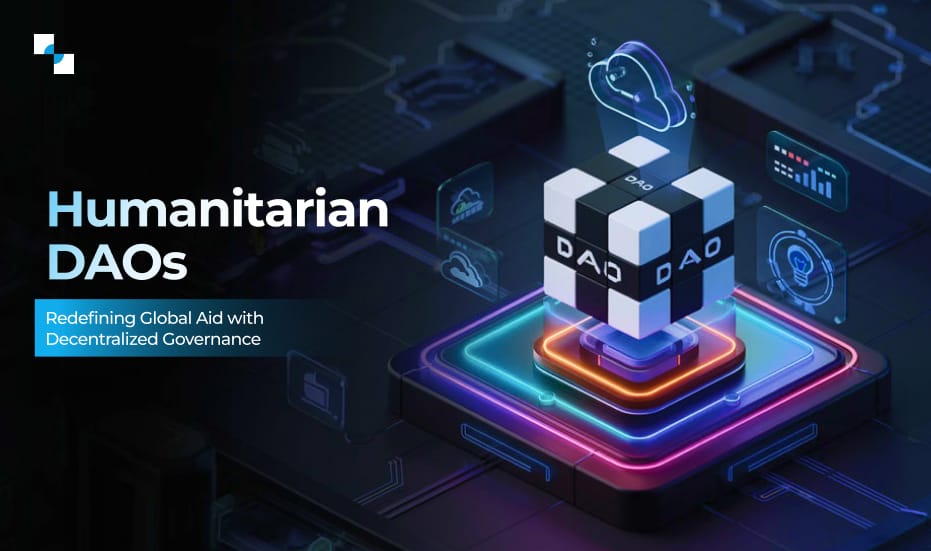MakerDAO is one of the longest-standing DeFi protocols and in terms of TVL (Total Value Locked) it has stationed itself at number #1. As a DeFi protocol MakerDAO, it operates as a decentralized organization to facilitate savings, borrowing, and lending functionalities. Its DAO development is the key to the success of MakerDAO.
Basically, anyone with Ethereum and a Metamask wallet can participate in lending and borrowing on MakerDAO. What is interesting about MakerDAO is that a user can lend himself money in the form of DAI stablecoin, which is backed by USD. For this, users have to lock a certain amount of Ethereum in MakerDAO’s smart contract and create a specific number of DAI that they can lend to themselves.
MakerDAO must have invented the wheel but with MakerDAO lending protocol clone development, it has become very easy to build a protocol like MakerDAO. However, there are some features that are indispensable in the MakerDAO clone script to ensure success.
Must-have features of MakerDAO
1) Users lock their crypto assets in the Maker Vault at a fixed liquidation ratio. The liquidation ratio determines the amount of crypto collateral value that is required to mint DAI worth $1.
2) MakerDAO charges its users some kind of stability fee. This is charged to cover any losses in case the value of the crypto is locked in the vault by the user for generated DAI drops below the Liquidation Ratio.
3) The stability of DAI is maintained by the DAO using the stability fee and DAI savings rate. While all these fees and rates can be customized during MakerDAO lending protocol clone development, it is important for you to understand the impact of these fees and rates on your business model.
4) While DAI can be used as any other stablecoin, it can also be used as leverage. The users can invest it in the DAI Savings Rate contract and earn interest.
5) For the users to participate in the governance of the DAO, they need to hold MKR tokens that give them the power of voting. The governance powers are used to vote for changes in DAI Saving fees, smart contracts, stability fees, or more.
6) Collateral is something that the users need to provide to the protocol which covers the loan in case the user is not able to repay it. While the MakerDAO clone script supports only crypto collateral, during the development it can be customized to support fiat collateral also.
7) DAI is minted using over-collateralization, which means if the price of Ethereum locked in the vault drops suddenly, it will not cover the loaned amount. This damage is protected using over-collateralization, which means if a user loans DAI worth $400, he will have to lock Ethereum worth $600. The amount is determined by the Liquidation ratio during DAO development. When a user borrows DAI, he locks his Ethereum in a CDP smart contract which sets the Liquidation Ratio.
8) The protocol also offers Vaults where the users lock their crypto collateral and generate DAI based on the liquidation ratio generated by the CDP smart contract. Once the user returns the DAI, the Vault burns this DAI.
What are the use cases of DAI?
Just like DAI, a stablecoin for your MakerDAO-like protocol can be designed to offer the same use cases that include:
1. Users can leverage the stablecoin
Let’s say the protocol user has only $100 ETH and he knows that the price will move up. He can use the $100 ETH as collateral and generate DAI like stablecoin. Using this DAI, he can buy more ETH and when the price moves up, he can cash his profit out. Then he can sell some of his stablecoins and retrieve his ETH collateral.
2. Earn interest on DAI like stablecoin
The users can lock their DAI-like stablecoin into a saving rate smart contract and earn interest. This rate is floating and is used by the DAO to maintain stablecoin peg to USD.
What are the features of the governance system?
The DAO is a Decentralized Autonomous Organization that requires participants to own a certain amount of governance tokens to vote. In the case of MakerDAO, the token is MKR and is used for:
1) Governance Polls where users create and vote for non-technical proposals e.g., the team-related decision or budgeting.
2) Executive votes are used where ever a technical change like a smart contact change is required.
Closing thoughts
MakerDAO and DAI both have proven that the model can be a huge success. However, if you choose to experiment with DAO development, the best practice is to start developing using a MakerDAO Clone as that ensures you have a strong foundation that can be easily customized to meet your business goals.
At Antier Solutions, we provide a MakerDAO Clone script solution to help you quickly launch a DAO like MakerDAO. In addition, we specialize in the development of customized DAO protocols based on your business needs.
Connect with our subject matter experts to share your requirements.







